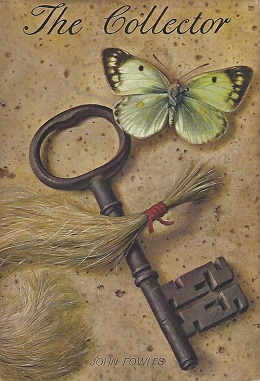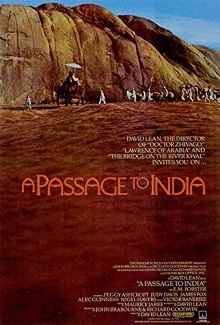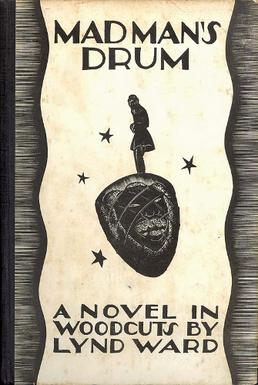
The Pork Butcher is a novel by English writer David Hughes, first published in 1984, and winner of the 1984 Welsh Arts council prize [1] and the 1985 WH Smith Literary Award. [2]

The Pork Butcher is a novel by English writer David Hughes, first published in 1984, and winner of the 1984 Welsh Arts council prize [1] and the 1985 WH Smith Literary Award. [2]
Based on the massacre of the inhabitants of Oradour-sur-Glane and the subsequent memorialisation of the razed village, the novel recounts the return of a former German soldier, Ernst Kestner, a Lübeck pork butcher dying of lung cancer, to the village of Lascaud-sur-Marn where he was quartered, where he fell in love, and where he participated in an unthinkable atrocity. Dealing with themes of guilt and reparation, and memory and its exploitation, the book centres less on the horror of war - which is by no means absent - than on the paradoxical nature of human relations. Kestner's attempts to expiate his remorse collide with his daughter's resistance to know on the one hand, and what one survivor, the local mayor and national deputy, has made of having his own personal history reduced to ashes from one day to the next. A short novel which eschews character development for paradoxical dialogue and plot twist, it is one of Hughes' most successful, having been filmed as Souvenir. In his characterisations of Kestner, his daughter Louise, her husband Henri, and the deputy Lorion, Hughes also attempts to seize upon salient aspects of German and French character, sometimes more to the detriment of the latter than the former.

Baron Vladimir Harkonnen is a fictional character in the Dune franchise created by Frank Herbert. He is primarily featured in the 1965 novel Dune and is also a prominent character in the Prelude to Dune prequel trilogy (1999–2001) by Herbert's son Brian and Kevin J. Anderson. The character is brought back as a ghola in the Herbert/Anderson sequels which conclude the original series, Hunters of Dune (2006) and Sandworms of Dune (2007).

On 10 June 1944, four days after D-Day, the village of Oradour-sur-Glane in Haute-Vienne in Nazi-occupied France was destroyed when 643 civilians, including non-combatant men, women, and children, were massacred by a German Waffen-SS company as collective punishment for Resistance activity in the area including the capture and subsequent execution of Waffen SS Sturmbannfuhrer Helmut Kämpfe, who an informant claimed had been burned alive in front of an audience. Kämpfe was a highly decorated commander in the 2nd SS Panzer Division Das Reich.

Sir David Lean was an English film director, producer, screenwriter, and editor, widely considered one of the most important figures of British cinema. He directed the large-scale epics The Bridge on the River Kwai (1957), Lawrence of Arabia (1962), Doctor Zhivago (1965), Ryan's Daughter (1970), and A Passage to India (1984). He also directed the film adaptations of Charles Dickens novels Great Expectations (1946) and Oliver Twist (1948), as well as the romantic drama Brief Encounter (1945).

The Sorrows of Young Werther, or simply Werther, is a 1774 epistolary novel by Johann Wolfgang Goethe, which appeared as a revised edition in 1787. It was one of the main novels in the Sturm und Drang period in German literature, and influenced the later Romantic movement. Goethe, aged 24 at the time, finished Werther in five and a half weeks of intensive writing in January to March 1774. It instantly placed him among the foremost international literary celebrities and was among the best known of his works. The novel is made up of biographical and auto-biographical facts in relation to two triangular relationships and one individual: Goethe, Christian Kestner, and Charlotte Buff ; Goethe, Peter Anton Brentano, Maximiliane von La Roche, and Karl Wilhelm Jerusalem, who died by suicide on the night of Oct 29 or 30, 1772. He shot himself in the head with a pistol borrowed from Kestner. The novel was adapted as the opera Werther by Jules Massenet in 1892.

The Collector is a 1963 thriller novel by English author John Fowles, in his literary debut. Its plot follows a lonely young man who kidnaps a female art student in London and holds her captive in the cellar of his rural farmhouse. Divided in two sections, the novel contains both the perspective of the captor, Frederick, and that of Miranda, the captive. The portion of the novel told from Miranda's perspective is presented in epistolary form.

Leslie Michael Grantham was an English actor, best known for his role as "Dirty" Den Watts in the BBC soap opera EastEnders. He was a convicted murderer, having served 10 years for the killing of a West German taxi driver, and had significant press coverage resulting from an online sex scandal in 2004.

Andrew Norman Wilson is an English writer and newspaper columnist known for his critical biographies, novels and works of popular history. He is an occasional columnist for the Daily Mail and a former columnist for the London Evening Standard. He has been an occasional contributor to The Times Literary Supplement, New Statesman, The Spectator and The Observer.

A Passage to India is a 1984 epic historical drama film written, directed and edited by David Lean. The screenplay is based on the 1960 play of the same name by Santha Rama Rau, which was in turn based on the 1924 novel of the same name by E. M. Forster.

Les Identitaires, formerly the Bloc identitaire, is an Identitarian nationalist movement in France. Like the French New Right, scholars generally consider the movement far-right or sometimes as a syncretic mixture of multiple ideologies across the political spectrum.

Furies of Calderon is the first novel in the high fantasy series Codex Alera by Jim Butcher. The novel was first released by Ace Books in the United States as a Hardcover edition on October 5, 2004, followed by a Paperback edition on June 26, 2005. Orbit Books released a paperback edition in the United Kingdom in December 2009. It tells the story of a young boy named Tavi who is the only one without any fury-crafting abilities.

The Master Butchers Singing Club is a 2003 novel by American author Louise Erdrich. It follows the lives of German immigrants Fidelis Waldvogel and his family, as well as Delphine Watzka and her partner Cyprian, as they adjust in their separate lives in the small town of Argus, North Dakota. Bookended by World War I, which Fidelis and Cyprian fought in, and World War II, which Fidelis' children fight in, the title contains several overarching themes including family, tradition, loss, betrayal, and memory, to name a few.
David Hughes was a British novelist. His best known works included The Pork Butcher for which he was awarded the WH Smith Literary Award in 1985 and But for Bunter, published as The Joke of the Century in the United States.

Atrocitus (Atros) is a supervillain appearing in American comic books published by DC Comics. He is the leader of the Red Lantern Corps and an enemy of the Guardians of the Universe and Sinestro, their former Green Lantern.

Village People is an American disco group known for its on-stage costumes and suggestive lyrics in their music. The group was originally formed by French producers Jacques Morali, Henri Belolo and lead singer Victor Willis following the release of the debut album Village People, which targeted disco's large gay audience. The group's name refers to Manhattan's Greenwich Village, with its reputation as a gay village. The characters were a symbolic group of American masculinity and macho gay-fantasy personas. To date, Willis is the only original member still remaining with the group.
Souvenir is a 1989 British drama film directed by Geoffrey Reeve and starring Christopher Plummer, Catherine Hicks and Michael Lonsdale. It was based on the novel The Pork Butcher by David Hughes. Forty years after the Second World War, an ex-German soldier returns as an American to a French village in which atrocities were committed by the Nazis, during which his then French lover was murdered. The film, like the book, is an attempt to attribute and assuage patent and discreet levels of guilt.

Young Goethe in Love is a 2010 German historical drama film directed by Philipp Stölzl and starring Alexander Fehling, Miriam Stein, and Moritz Bleibtreu. It is a fictionalized version of the early years of the poet Johann Wolfgang von Goethe and the events forming the basis of his novel The Sorrows of Young Werther.

Madman's Drum is a wordless novel by American artist Lynd Ward (1905–1985), published in 1930. It is the second of Ward's six wordless novels. The 118 wood-engraved images of Madman's Drum tell the story of a slave trader who steals a demon-faced drum from an African he murders, and the consequences for him and his family.
The dark forest hypothesis is the conjecture that many alien civilizations exist throughout the universe, but they are both silent and hostile, maintaining their undetectability for fear of being destroyed by another hostile and undetected civilization. It is one of many possible explanations of the Fermi paradox, which contrasts the lack of contact with alien life with the potential for such contact. The hypothesis derives its name from Liu Cixin's 2008 novel The Dark Forest, although the concept predates the novel.